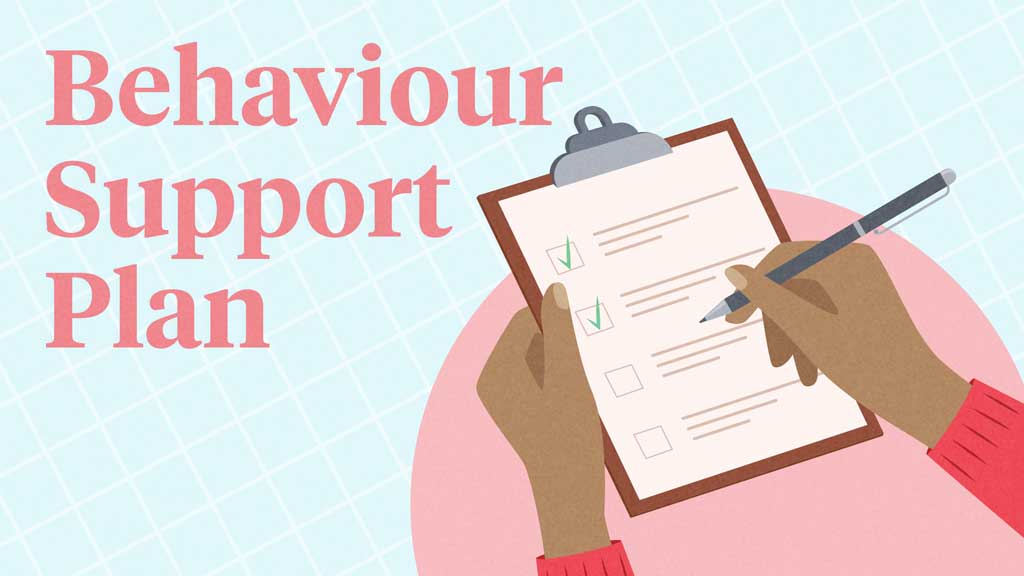Residential aged care providers must have behaviour support plans (BSPs) in place for all residents who require or might require the use of restrictive practices (ACQSC 2021).
This requirement is an update to the Quality of Care Principles 2014, in accordance with the Aged Care and Other Legislative Amendment (Royal Commission Response No.1) Act 2021 (Cth) (Manganaro 2021).
What is Behaviour Support?
Sometimes, aged care residents display behaviours that indicate they require extra support. These are known as changed behaviours. Often, changed behaviours signal that the resident is experiencing stress, wants to communicate something or has an unmet need (DSA 2021).
Some reasons why changed behaviours might occur include:
- Pain, discomfort or illness
- Interruption to routine
- Fatigue
- Medication changes, side effects or interactions
- Changes to the living environment
- Life events
- Wanting to communicate something
- Boredom or loneliness
- Delirium
- Constipation
- Dehydration
- Hunger or low blood sugar
- Mental illness (e.g. depression or anxiety)
- Hallucinations or delusions
- Sensory impairment.
(Carer Gateway 2015; Burkett 2023)
Behaviour support involves developing processes and strategies to proactively respond to and care for residents who are displaying changed behaviours, and avoiding anything that might negatively affect these behaviours (DSA 2021).
What is a Behaviour Support Plan (BSP)?

A behaviour support plan (BSP) assists in the care and support of a resident who displays changed behaviours (ACQSC 2022).
It forms part of a resident’s existing care and services plan and is required for any resident who:
- Displays changed behaviours
- Has been assessed as requiring the use of a restrictive practice, or
- Is currently experiencing a restrictive practice.
(DoHaAC 2024)
The Behaviour Support Process
Dementia Support Australia lists five steps of the behaviour support process:
- Identify
- Assess
- Plan
- Implement
- Evaluate
1. Identify
The first step is to recognise behaviours that indicate a resident might require additional support.
Examples of changed behaviours include:
- Verbal disruptions
- Sleep disturbances
- Inappropriate sexual behaviours
- Physical aggression
- Refusal to accept help or services
- Wandering or intrusiveness
- Inappropriate social behaviours
- Issues related to eating
- Resistance to personal care
- Repetitive actions or questions.
(DSA 2021, 2022)
Upon noticing these behaviours, your immediate priority should be to take appropriate action to ensure the safety of the resident and others. If the resident has an existing care plan in place, this should be implemented (DSA 2021).
Once the situation has been resolved, the changed behaviour should be appropriately reported (DSA 2021).
2. Assess
This step involves using the ABC Approach to Behaviour Management to better understand why the resident is behaving this way and identify any underlying causes (DSA 2022).
For more information on the ABC approach, see the Article: Behaviour Management and BPSD.
During this step, you might need to consider different aspects of the resident’s life, including:
- Physical health
- Cognitive health
- Personality
- Whether they are experiencing sensory issues
- Life history and what matters to them
- Mental health
- Environmental factors
- Relationships
- Communication skills and abilities
- Routine
- Engagement or lack of engagement.
(DSA 2021, 2022)
3. Plan
The next step is to develop a BSP in consultation with the resident. This should be individualised and tailored to the resident’s preferences and needs (DSA 2021).
A BSP may include interventions such as engagement strategies, communication strategies or environmental strategies (DSA 2021).
What Should a Behaviour Support Plan Contain?
Note: For a more comprehensive explanation of what needs to be included in a BSP, see the Quality of Care Principles 2014.
According to the Quality of Care Principles, a BSP must set out the following:
| Alternative strategies for addressing changed behaviours: |
|
| If the use of a restrictive practice has been assessed as necessary: |
|
| If a restrictive practice has been used: |
|
| If the ongoing use of a restrictive practice is required: |
|
4. Implement
Once the BSP has been developed, these strategies should be implemented. Each person involved in the resident’s care must understand their new responsibilities and be able to confidently deliver the resident’s support strategies (DSA 2021).
Being able to consistently implement support strategies is crucial (DSA 2021).
5. Evaluate
The BSP is expected to be regularly reviewed and revised to assess the effectiveness of support strategies and ensure the resident is being supported in a way that best meets their care needs (DSA 2021).
Test Your Knowledge
Question 1 of 3
Which one of the following is an example of a changed behaviour that might indicate a need for behaviour support?
Topics
Further your knowledge
 Free
Free Free
Free Free
FreeReferences
- Aged Care Quality and Safety Commission 2022, Behaviour Support Plans, Australian Government, viewed 11 September 2024, https://www.agedcarequality.gov.au/news-publications/clinical-alerts/behaviour-support-plans
- Aged Care Quality and Safety Commission 2021, Behaviour Support Plans — a Fact Sheet for Residential Aged Care Providers, Australian Government, viewed 11 September 2024, https://www.agedcarequality.gov.au/resource-library/behaviour-support-plans-fact-sheet
- Burkett, E 2023, Behaviours of Concern, Queensland Government, viewed 11 September 2024, https://www.health.qld.gov.au/__data/assets/pdf_file/0028/1119853/22.Behaviours-of-concern.pdf
- Carer Gateway 2015, Managing Health and Behaviour, Australian Government, viewed 11 September 2024, https://www.carergateway.gov.au/help-advice/managing-health-behaviour
- Dementia Support Australia 2021, Behaviour Support Plans, DSA, viewed 11 September 2024, https://www.dementia.com.au/behaviour-support-plans
- Dementia Support Australia 2022, Behaviour Support Plans: Your Essential Guide, DSA, viewed 11 September 2024, https://www.dementia.com.au/resource-hub/behaviour-support-plan-resources
- Department of Health and Aged Care 2024, Restrictive Practices in Aged Care – a Last Resort, Australian Government, viewed 11 September 2024, https://www.health.gov.au/topics/aged-care/providing-aged-care-services/training-and-guidance/restrictive-practices-in-aged-care-a-last-resort
- Manganaro, F 2021, ‘Behaviour Support Plans Mandatory From 1 Sep 2021 – What Residential Aged Care Providers Need to Know’, Aged Care Essentials, 24 August, viewed 11 September 2024, https://www.agedcareessentials.com.au/news/behaviour-support-plans-mandatory-from-1-sep-2021-what-residential-aged-care-providers-need-to-know
- Quality of Care Principles 2014 (Cwlth), viewed 11 September 2024, https://www.legislation.gov.au/F2014L00830/latest/text
 New
New 
